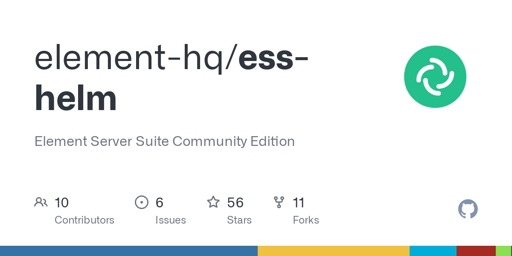

I find this comparison unfair becuase k3s is a much more batteries included distro than the others, coming with an ingress controller (traefik) and a few other services not in talos or k0s.
But I do think Talos will end up the lighest overall because Talos is not just a k8s distro, but also a extremely stripped down linux distro. They don’t use systemd to start k8s, they have their own tiny init system.
It should be noted that Sidero Labs is the creator of Talos Linux, which another commenter pointed out.


In my opinion, you are starting too big. It’s better to start smaller. Many locations have a “Linux User Group” or “hackerspace” or a “Computing Club”. (Those are exact keywords you can try searching for).
And often times, those organizations host their own small set of services for their members. For example, when I was searching for help on how to set up something with Kubernetes, I came across this blog, where the blog author hosts services for their “Chaos Computing Club”, like proxmox, nextcloud (has a calendar app), matrix, and forgejo.
Instead of trying to spin up a set of services for the whole “FOSS Community” start smaller and just host for your local groups. Maybe your local hackerspace already hosts these services.
To find local meetups, I checked out https://meetup.com/, which has a lot.
As for me personally, I am trying to put together services for my Cybersecurity club at my school, right now I have centralized identity, and virtual machine hosting for members to access and play with, but I want to also host extra services like the stuff you mentioned, because the reasons why you want them are good.
On my blog, I discuss my plans and steps: https://moonpiedumplings.github.io/projects/build-server-6/
I think creating a “FOSS hub” overall is a really really big challenge because all of these groups that make up the FOSS world have a heterogeneous set of overall interests, and an even more heterogeneous set of users.
A simple example is the language barrier. Fun fact: There exist alternatives to apps that primarily have English as their first language, but in other languages first, centering around the communities those languages are used in. For example, the opendesk docs are in German first. Of course, there are English docs for things like engagement, but the problem is that —
For something like a FOSS hub, user engagement is critical, and one of the best ways to have engaged users is dogfooding, where users contribute back to this software they use. But with software that treats one language or another as a first class citizen, there is becomes a bump, when users want to dogfood.
The other problem is that the users themselves have different needs and wants. One user or set of users hates email and never wants to touch it. Another wants to exclusively use plain email for everything, including as an alternative to code forges, discussion platforms, and scheduling systems. One set of users prefers discord, the others prefer irc. They meet in the middle on matrix, but this other set of users hates matrix due to being VC funded and it’s just a clusterfuck.
You cannot make both groups of users happy. When you try to please everybody, you end up pleasing nobody.
What you can do, however, is catch the needs of your local groups and slowly expand from there. I think a FOSS Hub is possible, but I think trying to start it as a foss hub is bound for failure because the scope is too large.
I think the closest thing right now is disroot, which hosts a lot of services, but again Disroot uses XMPP whereas some people may prefer Matrix for this usecase, and plenty of other nitpicks.